The organization Apolitical, which focuses on fostering innovation in the global public sector, has unveiled its 2025 list of the 100 most influential people in government AI, known as The Government AI 100. This prestigious list highlights individuals shaping the adoption, regulation, and strategic use of artificial intelligence to improve public services worldwide. Among the honorees are 10 outstanding African leaders, recognized for their significant contributions to integrating AI into governance and driving technological progress across the continent.
As artificial intelligence (AI) continues to push the boundaries of innovation, these African leaders have emerged as global influencers in this complex field. Their work is not only shaping AI policies but also ensuring that this technology serves the public good while fostering inclusion, innovation, and sustainable development.
Apolitical is the world’s largest community of public servants, with a mission to build 21st-century governments that work for people and the planet. Used by 250,000 public servants and policymakers in 160 countries, the platform helps them discover and share best practices through peer communities and provides opportunities for professional development through flexible online learning focused on the priorities of 21st-century governments.
Below are the profiles of these visionaries actively driving the future of AI in Africa and beyond.
Governance and Regulation of AI
Philip Thigo (Kenya)
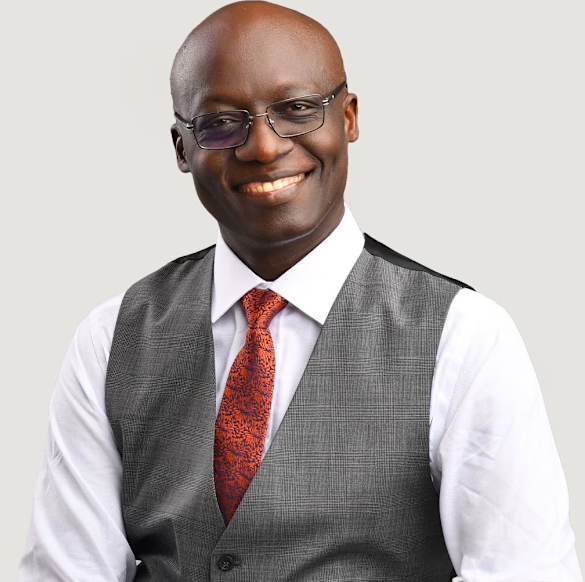
Known for: Advancing global AI governance discussions
Philip Thigo is Kenya’s Special Envoy on Technology, playing a pivotal role in shaping the nation’s digital policies and international technological engagements. In this capacity, he advises on data innovation and open government, influencing Kenya’s approach to artificial intelligence (AI) and digital governance.
In October 2023, Thigo was appointed to the United Nations Secretary-General’s High-Level Advisory Body on Artificial Intelligence, contributing to global AI governance discussions. As the Executive Director for Africa at the Thunderbird School of Global Management, he leads initiatives on the continent’s participation in the Fourth Industrial Revolution. Thigo’s expertise spans digital governance, financial inclusion, and technological innovation, enabling him to shape AI policies across various sectors.
Patricia Adusei-Poku (Ghana)

Known for: Data and AI leadership in Ghana
Patricia Adusei-Poku is the Executive Director of the Ghana Data Protection Commission. In this role, Adusei-Poku oversees the use of personal data, advocating that all government institutions employ cutting-edge technology to protect individuals’ data and privacy. Adusei-Poku has held a variety of roles in and outside of government, notably serving as the Head of Data Protection for the London 2012 Olympics.
Additionally, Adusei-Poku is one of the key leaders behind Ghana’s National AI Strategy, which she has described as focusing on harnessing AI for national development. The vision behind the AI strategy is to make Ghana a leader in AI on the African continent.
Dr. Seydina Moussa Ndiaye (Senegal)

Known for: Inclusive AI advocacy
Dr Seydina M. Ndiaye is a member of the UN Secretary-General’s High-Level Advisory Body on Artificial Intelligence and an AI expert for the African Union, where he is contributing to the development of the Pan-African AI Strategy. He also serves on the Multistakeholder Expert Group and the Responsible AI Working Group, shaping global and regional frameworks for ethical AI governance.
As Program Director of FORCE-N at Cheikh Hamidou Kane Digital University, Ndiaye leads efforts to transform Senegal’s higher education sector through digital innovation. Holding a PhD in Computer Science from Paul Sabatier University and an MBA from Paris Sorbonne University, he has extensive expertise in AI research and its application across diverse sectors.
Ndiaye is a prominent voice against “digital colonisation,” advocating for inclusive AI systems that empower African nations while protecting their data sovereignty. He is recognised for advancing AI strategies that address Africa’s unique challenges.
Golestan (Sally) Radwan (Egypt)
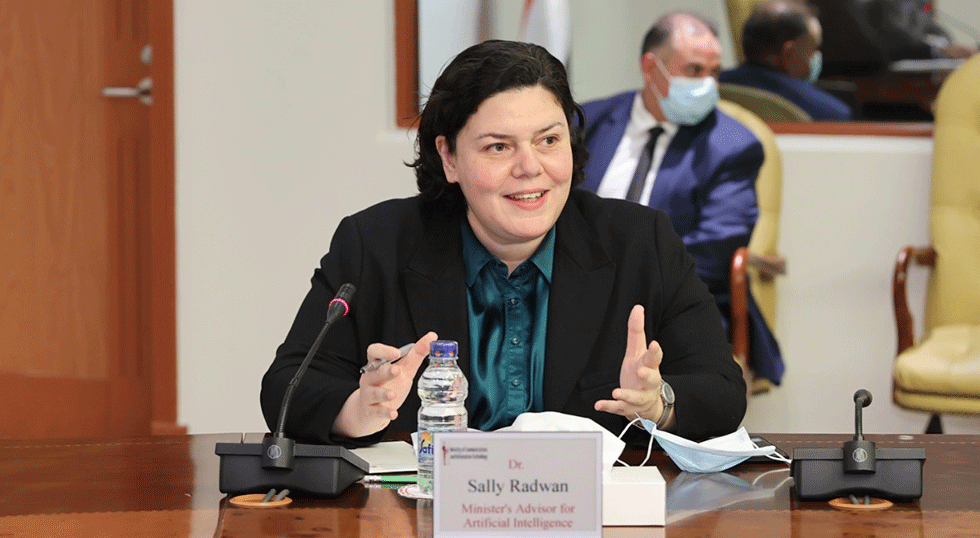
Known for: Regional collaboration on AI
Golestan (Sally) Radwan is a computer scientist by training, and is currently the Chief Digital Officer for the United Nations Environment Program (UNEP). Before joining UNEP, Radwan served as an advisor tot he Egyptian Minister for ICT, a role in which she led the development of Egypt’s national AI strategy. This strategy stood out for its commitment to achieving development outcomes for Egypt.
In addition to her role in creating Egypt’s AI strategy, Radwan led two AI-related working groups in the African Union and League of Arab States intended to increase regional collaboration on responsible AI. She is also a member of the OECD AI Community, and speaks about the potential role of AI solving the “triple planetary crisis.”
Implementation and Adoption of AI
Bernardo Mariano Joaquim Junior (Mozambique)
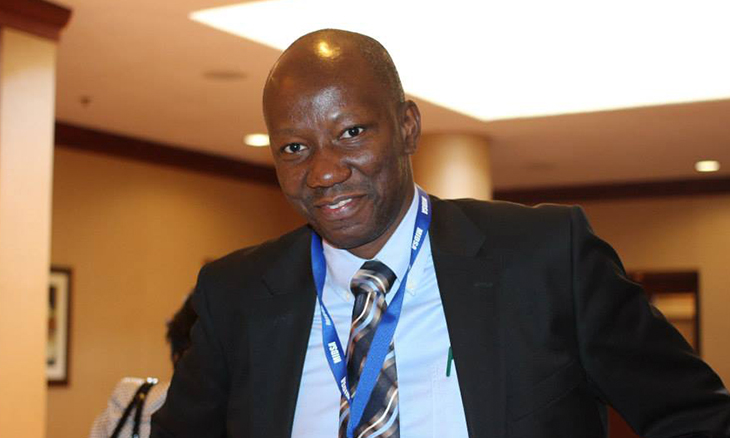
Known for: Shaping global AI policy
Bernardo Mariano plays a key role in shaping international policies for responsible AI use. He leads the UN’s digital transformation efforts, integrating digital technologies and AI to enhance organisational efficiency and support Sustainable Development Goals.
Mariano is responsible for the security of UN data and digital assets. His work positions him at the forefront of applying AI and emerging technologies within governmental and international frameworks.
Before joining the UN, he was Chief Information Officer and Director for Digital Health and Innovation at the World Health Organization (WHO).
Cina Lawson (Togo)
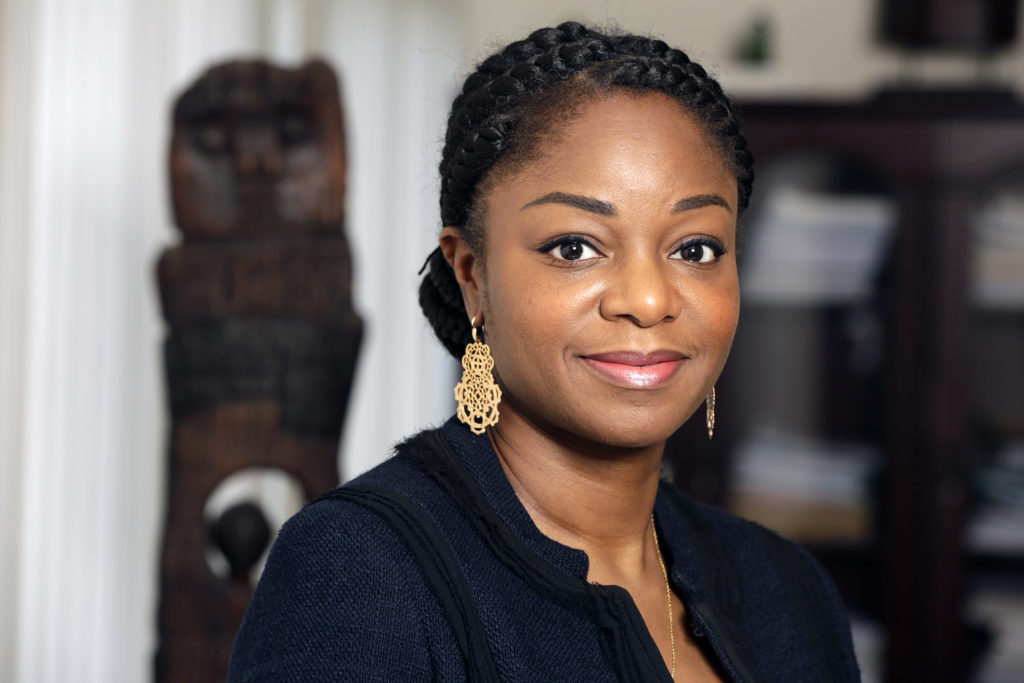
Known for: Advancing digital inclusion and AI-powered innovation
Cina Lawson is Togo’s Minister of Digital Economy and Transformation, driving national digital innovation and inclusion efforts. Her initiatives focus on expanding internet access, integrating ICT into education, and leveraging AI to enhance public services and financial inclusion.
During the COVID-19 pandemic, Lawson spearheaded NOVISI, an AI-powered digital cash transfer system that supported over 920,000 vulnerable individuals. She has also led efforts to use AI in regulatory reforms, streamlining governance and public service delivery.
Previously, Lawson worked at the World Bank, Alcatel-Lucent, and Orange Group, specialising in regulatory reform and business strategy. Her leadership has positioned Togo as a regional leader in AI-driven innovation and governance.
Mondli Gungubele (South Africa)

Known for: Leveraging AI for national security
Mondli Gungubele is South Africa’s Deputy Minister of Communications and Digital Technologies.
In May 2024, he launched the Defence Artificial Intelligence Research Unit (DAIRU) at the Military Academy in Saldanha, Western Cape. This military-focused AI hub, created in partnership with the Department of Defence, aims to deploy AI in South Africa’s defence sector as well as in national development and security.
At the South African National AI Summit, Gungubele highlighted the potential of AI to resolve economic and social challenges, positioning AI as a cornerstone of the country’s technological transformation.
Eliud Owalo (Kenya)
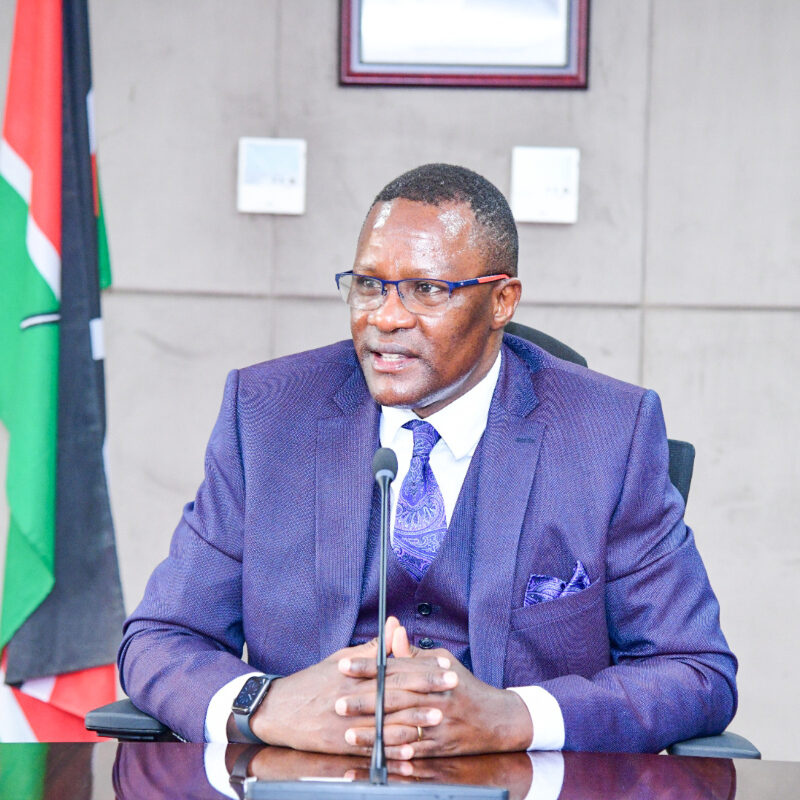
Known for: Championing AI-driven digital transformation in government
Eliud Owalo is the Deputy Chief of Staff in charge of performance and delivery management in the Executive Office of the President of Kenya.
From 2022 to 2024, he served as Cabinet Secretary for Information, Communication, and Digital Economy, where he played a key role in Kenya’s National Digital Master Plan (2022–2032).
Owalo has been a highly influential leader in Kenya’s digital transformation, including the development of the AI sector, which is now worth $240 million to the national economy.
During his tenure as ICT minister, he oversaw the digitalisation of over 17,000 government services.
Before his time in government, Owalo was a management consultant and director of the National School of Government. He is an advocate for AI adoption in the public sector, particularly in health service delivery and education.
AI Innovation and Research
Paula Ingabire (Rwanda)
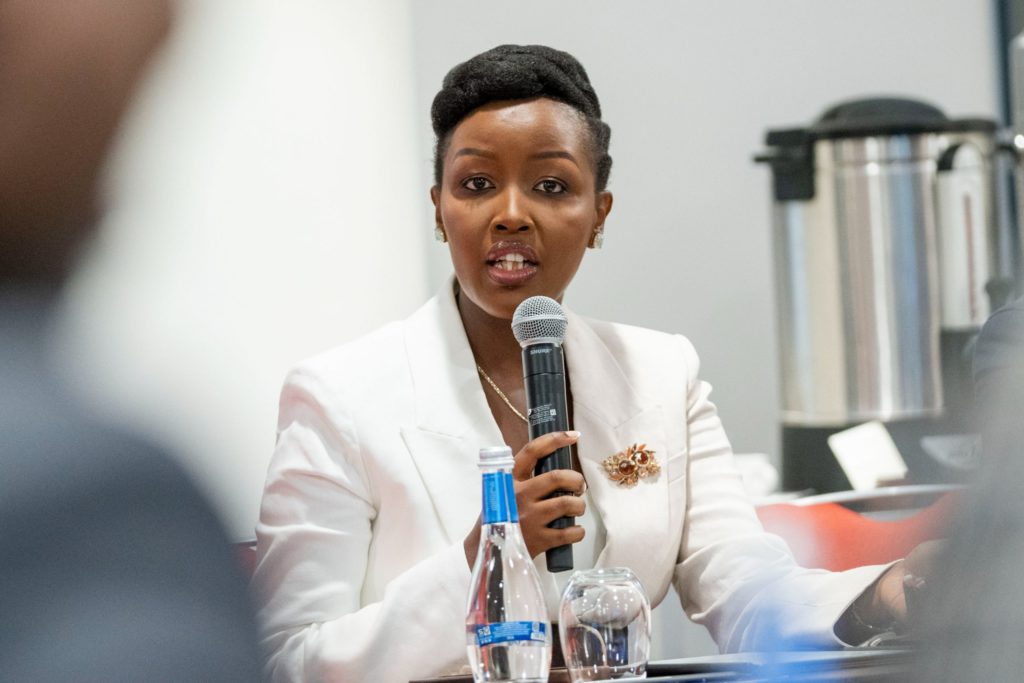
Known for: Driving Rwanda’s tech transformation
Paula Ingabire is Rwanda’s Minister of ICT and Innovation, leading the country’s digital transformation and technological advancement. In this role, she spearheads initiatives to position Rwanda as a regional tech hub, including the development of policies for innovation and sustainability, such as e-waste management.
Prior to her ministerial appointment in October 2018, Ingabire served as Head of the ICT Business Development Department at the Rwanda Development Board and coordinated the Kigali Innovation City Project, contributing to the implementation of national ICT programs.
An alumna of the Massachusetts Institute of Technology’s System Design and Management program, she fosters partnerships to advance Rwanda’s development as a knowledge-based economy.
Dr. Bosun Tijani (Nigeria)
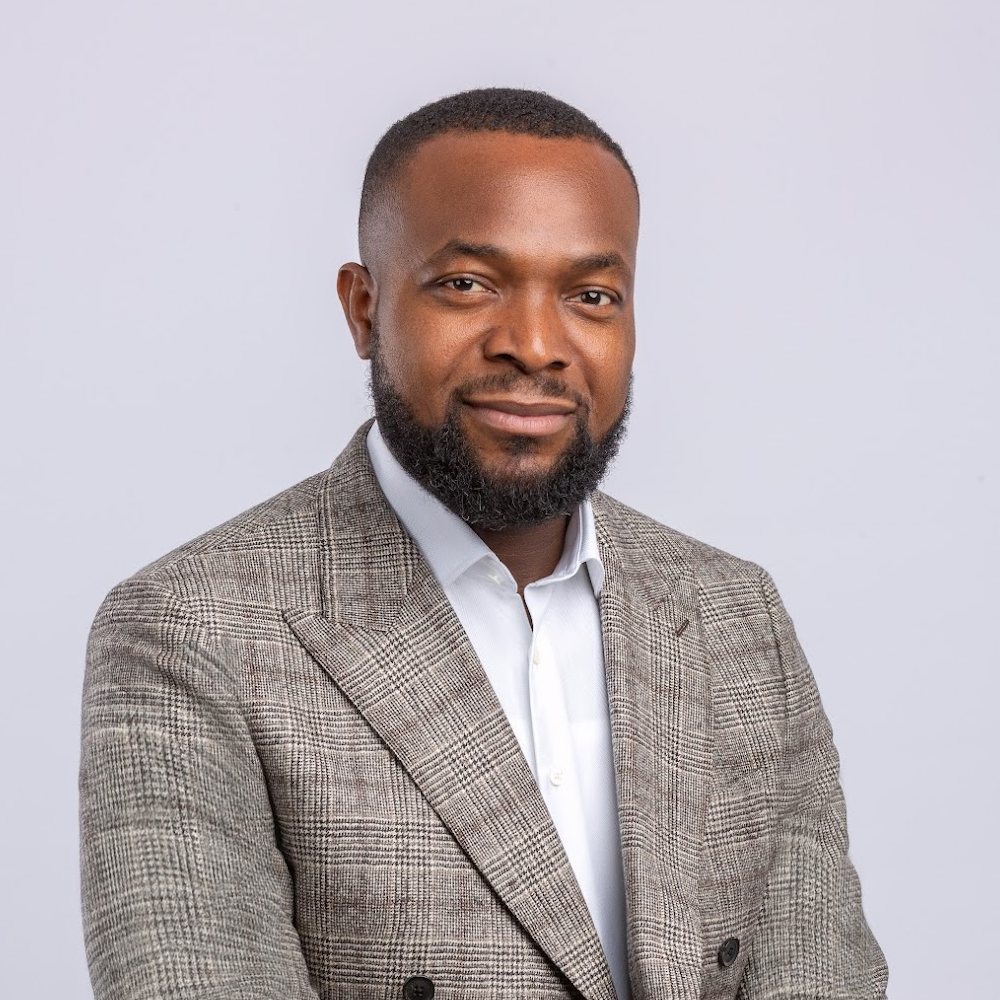
Known for: Bridging skills gaps in technology
Dr Bosun Tijani is the Minister of Communications, Innovation and Digital Economy for Nigeria, dedicated to bridging the country’s technology skills gap and achieving 70% digital literacy by 2027 through initiatives like the 3 Million Technical Talent (3MTT) programme.
A pioneer in Africa’s start-up ecosystem, Dr Tijani co-founded Co-Creation Hub (CcHUB) in 2010, fostering innovation and driving the growth of tech start-ups across the continent. Under his leadership, CcHUB expanded its presence to Nigeria, Kenya, Rwanda, and Namibia, catalysing the transformation of Nigeria’s Yaba into a hub of technological excellence.
In the AI space, Dr Tijani co-launched the AI Collective in 2024, a community focused on knowledge generation, training, funding start-ups, and documenting AI practices in Africa. He also serves as Co-Chair of the Digital Innovation Board and sits on the Board of Trustees for UNITAR.
Dr Tijani is recognised for championing innovation-driven development and scaling technology for societal impact.
